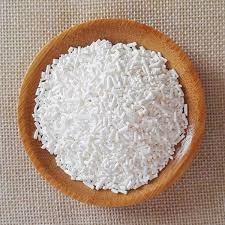
Exploring Safe Preservatives for Enhancing Zobo Drink Shelf Life and Quality
Preservatives for Zobo Drink Ensuring Safety and Longevity
Zobo drink, a popular beverage made from the hibiscus plant, has gained immense popularity in various parts of the world due to its vibrant color, refreshing taste, and numerous health benefits. Originating from West Africa, this drink is rich in antioxidants, vitamins, and minerals, making it a favorite among health-conscious consumers. However, like many natural beverages, Zobo has a relatively short shelf life. This has prompted the exploration of preservatives to enhance its safety and longevity without compromising its unique flavor and nutritional profile.
Understanding Zobo Drink
Zobo drink is traditionally prepared by steeping dried hibiscus petals in water, often with the addition of flavorings such as ginger, cloves, and sugar. While the drink is enjoyed fresh, its natural ingredients can lead to microbial growth and spoilage if not stored properly. As a result, many producers and home brewers are seeking effective ways to preserve this delightful beverage.
The Role of Preservatives
Preservatives are substances added to food and beverages to prevent spoilage, maintain freshness, and extend shelf life. They can be classified into two main categories natural and synthetic. Natural preservatives, such as salt, sugar, vinegar, and certain plant extracts, have been used for centuries in food preservation. Synthetic preservatives, on the other hand, are chemically manufactured and include options like sodium benzoate, potassium sorbate, and sulfur dioxide.
When considering preservatives for Zobo drink, it is essential to balance safety, flavor, and health benefits. The choice of preservative can influence not only the drink's longevity but also its taste and nutritional value.
Common Preservative Options for Zobo Drink
1. Citric Acid A natural preservative commonly found in citrus fruits, citric acid can help acidify Zobo drink, creating an unfavorable environment for microbial growth. It also enhances the flavor profile, adding a pleasant tartness that complements the drink's natural sweetness.
preservatives for zobo drink

2. Vitamin C (Ascorbic Acid) Widely recognized for its antioxidant properties, vitamin C can serve as a natural preservative in Zobo drink. It helps to maintain color and flavor while preventing oxidation, thereby extending shelf life without compromising health benefits.
3. Honey In addition to being a natural sweetener, honey possesses antimicrobial properties that can help extend the shelf life of Zobo drink. Its inclusion not only adds sweetness but can also enhance the overall flavor profile.
4. Sodium Benzoate This synthetic preservative is effective against a range of yeast and bacteria. While it is widely used in beverages, some consumers prefer to avoid synthetic additives, prompting producers to seek alternatives.
5. Potassium Sorbate Similar to sodium benzoate, potassium sorbate is effective in preventing mold and yeast growth. It is often used in combination with other preservatives to enhance effectiveness.
Considerations for Using Preservatives
When incorporating preservatives into Zobo drink production, it is crucial to consider consumer preferences and regulations. Many health-conscious consumers are wary of synthetic additives, making natural preservatives a more appealing option. Additionally, labeling must comply with food safety regulations, providing transparency about the ingredients used.
Conclusion
The exploration of preservatives for Zobo drink is essential for ensuring its safety, longevity, and overall quality. By carefully selecting the right preservatives, producers can maintain the drink's refreshing taste and health benefits. As the popularity of Zobo continues to rise, understanding the intricacies of preservation will be vital in meeting consumer demands while promoting a delicious and nutritious beverage. Balancing traditional methods with modern preservation techniques will ensure that Zobo drink can be enjoyed by many for years to come.
-
Why Glacial Acetic Acid Food Grade Is Essential in FlavorNewsMay.26,2025
-
Surging Export Growth of Food Additives in ChinaNewsMay.26,2025
-
How Ammonium Nitrate Fertilizer Boosts Crop YieldsNewsMay.26,2025
-
How 1,2,3-Benzotriazole Shields Plastics from UV DegradationNewsMay.26,2025
-
Cyanide in Gold Mining: Protecting People and the PlanetNewsMay.26,2025
-
Aluminum Hydroxide in Modern Sunscreen FormulationsNewsMay.26,2025
-
Understanding Synthetic Rubber OptionsNewsApr.27,2025
Hebei Tenger Chemical Technology Co., Ltd. focuses on the chemical industry and is committed to the export service of chemical raw materials.
-

view more DiethanolisopropanolamineIn the ever-growing field of chemical solutions, diethanolisopropanolamine (DEIPA) stands out as a versatile and important compound. Due to its unique chemical structure and properties, DEIPA is of interest to various industries including construction, personal care, and agriculture. -

view more TriisopropanolamineTriisopropanolamine (TIPA) alkanol amine substance, is a kind of alcohol amine compound with amino and alcohol hydroxyl, and because of its molecules contains both amino and hydroxyl. -

view more Tetramethyl Thiuram DisulfideTetramethyl thiuram disulfide, also known as TMTD, is a white to light-yellow powder with a distinct sulfur-like odor. It is soluble in organic solvents such as benzene, acetone, and ethyl acetate, making it highly versatile for use in different formulations. TMTD is known for its excellent vulcanization acceleration properties, which makes it a key ingredient in the production of rubber products. Additionally, it acts as an effective fungicide and bactericide, making it valuable in agricultural applications. Its high purity and stability ensure consistent performance, making it a preferred choice for manufacturers across various industries.











